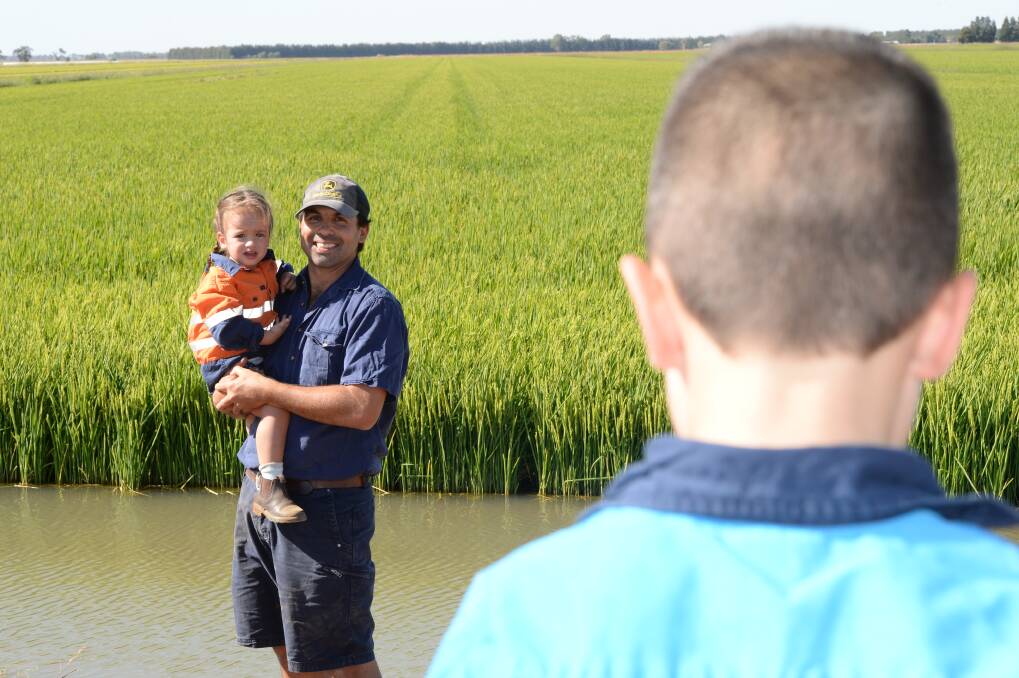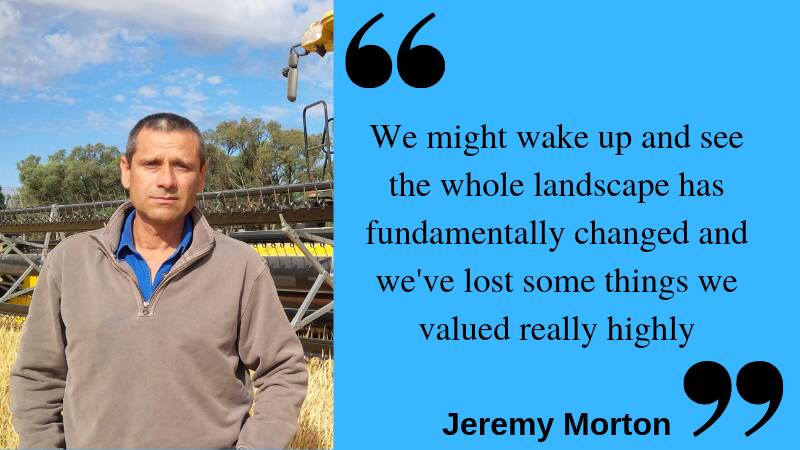
Analysis
It is said crisis is the true revealer of character and that's what's happening to the water market in the current drought.
Subscribe now for unlimited access to all our agricultural news
across the nation
or signup to continue reading
According to election-fuelled national media, our biggest worries stop at fish kills, government overspend on water buybacks and the antics of a very angry ex-Water Minister.
But what you won't hear is the human cost of decades of free market reforms.
A free-market revolution has swept across the Murray Darling Basin and its communities since economic and environmental reforms first kicked off in 1994.
On top of the current drought the three new big issues for family farms to contend with are corporate irrigators with deep pockets, less water overall for irrigation, and water trade rules that enable water entitlements to be bought and sold across catchments - allowing bulk water to move to the highest price.
All of which has driven water prices beyond the means of family farmers.
Dairy farmers are selling out in droves. Rice farmers make more money renting their water out than growing a crop. Corporate farmers are buying out family farmers at an increasing rate, and changing the cropping mix in the process.
The viability of many towns is under threat. So too the jobs in regional processing and service industries.
How did it come to this?
In 1994, Australian governments agreed to deregulate the water markets by separating land and water titles, and freeing up trading restrictions that limited trading of entitlements between catchments.

That kicked off a chain of reforms culminating in the Murray Darling Basin Plan, which reduces irrigation consumption and releases more to the environment.
Right now, in the grip of drought, it's the first time water shortages have coincided with the post-deregulation rise of corporate irrigators.
Communities up and down the Murray Darling Basin are lashing out, demanding a fix to market failure.
The NSW election has already overturned safe Nationals seats in irrigation country, and the federal election looks like it could do the same thing again.
About 1000 people marched in Albury. They want the Basin Plan - which has become shorthand for the overall water market - to be paused so the problems can be sorted.
But it's unlikely that changing the Basin Plan, essentially an environmental reform, would unscramble the free market mess that has farm communities in chaos.
Rice Growers Australia president Jeremy Morton said the government's "laissez-faire" approach is delivering perverse outcomes.
RELATED READING
"In ten years' time, if there is no irrigated dairy, or rice is back to very small levels, or even annual cropping, winter cropping, livestock are really shrunk back, we might wake up and see the whole landscape has fundamentally changed and we've lost some things we valued really highly," Mr Morton said.
"All the milk that is processed in communities in the Southern Basin - produced here and value added. Rice is the same, grown, milled and sent off to market from the local community.
"But what if we step back and say 'as a society is that what we wanted out of water reform?"
There are some limited trading restrictions on the water market, which reflect some of the physical limitations of the river system, but that hasn't prevented corporate investors trading entitlement downstream to supply their new permanent plantings.
That means the market heaps more pressure on the family irrigators left in the near hundred year-old irrigation schemes located upstream, near dams.
"The government spent millions on those schemes, but the market is now pulling money out of them and using it downstream where it is less efficient to use the water," Mr Morton said.
"That is the exact opposite of what was thought would happen. You've already got the infrastructure close to the dam. It's more efficient and there are better soils there.
"Economic rationalist would say, no the market isn't failing, it's working. But if we are seeing the result of it 'working' then I think we have to question if this is what we as a society want.
"We've let the water market rip, but it can't be completely unregulated like that. Just look at what happened to the banking sector."
Lat week, the Coalition lodged an election wildcard into the water debate.
Moving to address farmer outrage in NSW and Victorian irrigation districts, the Coalition has promised that if re-elected, it will instruct the Australian Competition and Consumer Commission to conduct a review of the southern Murray Darling Basin Water Market.
It remains to be seen what the scope of an ACCC inquiry would be, but it would be hard for the corporate watchdog to ignore a raft of controversial issues.
Both major parties oppose a Royal Commission into water reform, but it remains to be seen if Labor would support the Coalition's ACCC inquiry.
- If you have a story on how water reform has affected you, your family or your community and you would like to share it with The Land, please email us at: letters@theland.com.au


